Signs Of Dementia In Dogs
This time of year, there are so many animals sitting in shelters. It breaks my heart because so many of us want the puppy, the younger dog, because they are healthier, less trips to the vet, less maintenance, but what about those senior dogs waiting for their forever home. What we don’t see is all the love older pets can give. What we also don’t see is the hidden health problems that all animals can get such as Dementia. Yes, dogs can get the same sickness as we do! And with older pets, we have to watch more closely at the changes in their behavior, eating habits, routines, and take action. If your pup is having difficulty, watch for the following signs:
“Dogs do speak, but only to those who know how to listen.”– Orhan Pamuk

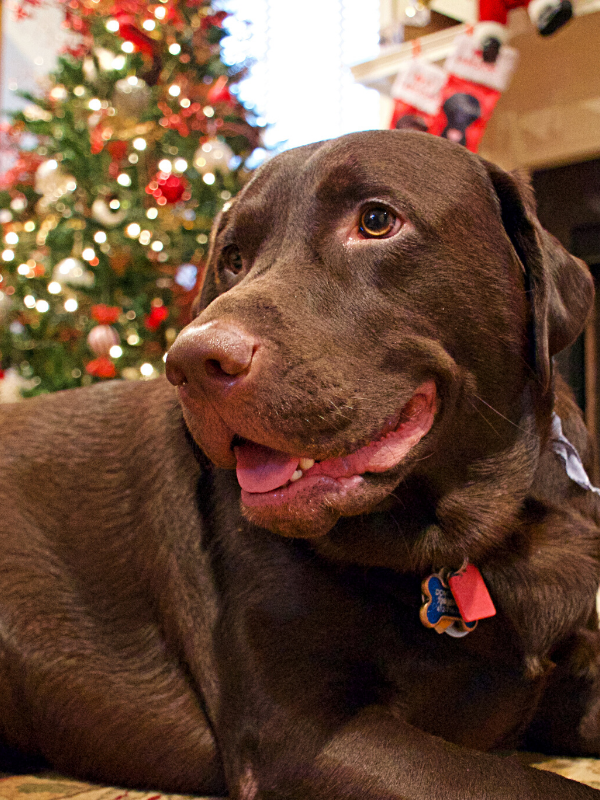
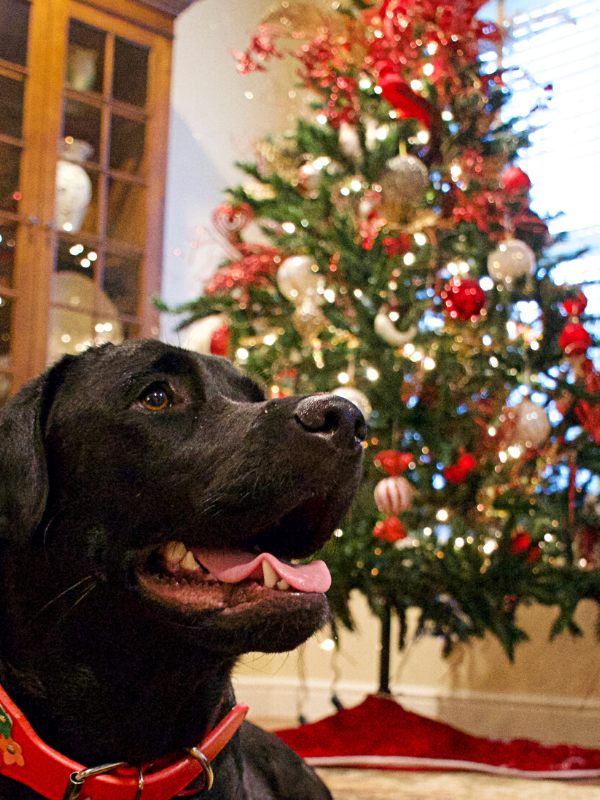
Maggie's photo bomb
Yes…this is what picture taking looks like at our house :-).
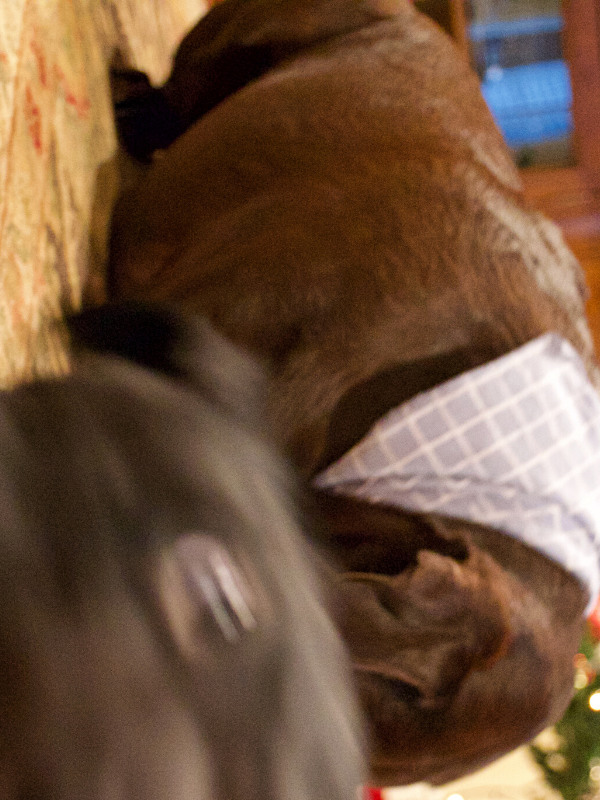
Disorientation – Your pet is having a hard time finding his way around the house, locating his dog bowl, finding the door after they have been let outside, time changes such as when it gets dark outside and they do not recognize bed time.
Changes in Sleep-Wake Schedule – The brain of a dog with dementia may mix up her sleep-wake cycles. This means that a pup who used to sleep peacefully through the night is suddenly antsy, active, and unsettled. Many dogs reverse their normal schedules, so their daytime activities become their nighttime activities. Possibly changing the lighting by using a night light or white light to fabricate daylight or getting a vet-prescribed medication to calm your dog down in the evening.
Interactions with other humans, dogs, etc. – If your dog’s interactions with his favorite people or reactions to certain things drastically change, you should definitely take notice. Of if things that use to excited your dog, like a ride in the car do not excited them anymore, take notice.
Accidents in the house – This could be a cause of many things such as a bladder infection but take notice. If they have the option to defecate outside and can go out very easily but chooses to soil in the house, they may not understand the meaning of going outside anymore. You should never scold a trained dog for having an accident in the house. Chances are, this is a good indication that something health wise is wrong with them.
Lower energy – This is yet another sign that can have multiple causes. It’s normal for a dog’s activity levels to decrease with age, but a lack of energy, especially accompanied by a lack of interest, could indicate cognitive issues.
Cognitive issues – losing focus or getting disoriented during a game of fetch or dropping food when they are eating and can’t find it. If they don’t have sight or hearing issues, take notice. Something else might be going on.
Repetitive or obsessive behaviors – They may exhibit repetitive motion; things like head bobbing, leg shaking, or pacing in circles. This kind of action is more related to cognitive dysfunction or degeneration of the brain. Repetitive barking for no reason, could also indicate cognitive dysfunction.
Some ways you can help your pet with Dementia:
Make dietary changes – Consult with your vet to make dietary changes with foods and supplements with omega-3 fatty acids and antioxidants to help keep cells healthy.
Brain games – keep your pups mind going by trying to keep him socialized or playing brain games with him such as puzzle toys called BrainBall.
If your pet is diagnosed with Dementia, make sure you keep a record of supplements and medications that you are giving him. Dementia cannot be cured but we can try and slow it down. When you bring your pet home, it should be for life and we should do all we can to help them age as painless as possible. Regular check-ups are imperative. I also agree that keeping them calm and helping them to understand that things are ok will help ease their anxiety. We all know that added stress on our bodies does not help in any way shape or form.

You Might Also Like
What Is the “777” Rule For Dogs?
Happy Wednesday, everyone! What is the "777" rule for dogs? The 777 Rule for Dogs is a simple guideline that helps adopters understand what to expect when bringing a new dog home—especially from a shelter or rescue. It reminds you that adjustment takes time and...
What Are The Health Hazards Of Walking A Dog During Winter?
Happy Wednesday, everyone! What Are The Health Hazards Of Walking A Dog During Winter? Maggie loves playing in the snow, but the major snowstorm that rocked our area on Sunday made it hard for us to stay out and play as long as we normally do. We got about 14...

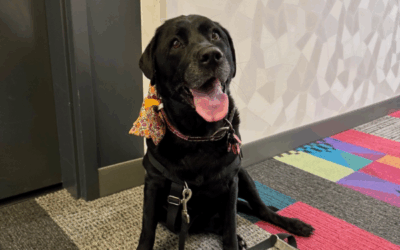
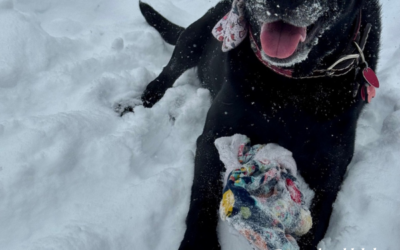
❤️